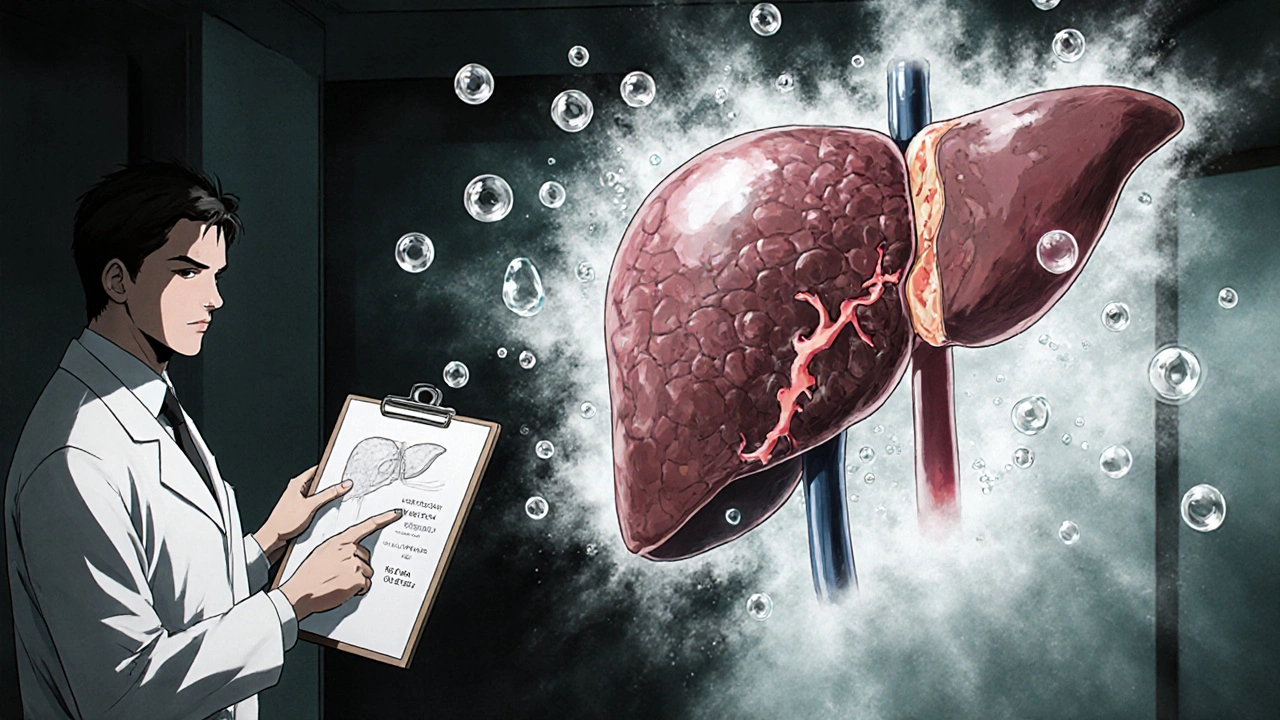HCV Treatment
When talking about HCV treatment, the medical approach for clearing hepatitis C infection and preventing liver damage, the first thing to know is the target: the Hepatitis C Virusa blood‑borne RNA virus that can become chronic and damage the liver. Modern direct‑acting antivirals(DAAs) such as sofosbuvir, ledipasvir, glecaprevir and pibrentasvir, which block specific steps in the viral life‑cycle have turned a once‑hard‑to‑cure disease into a short, well‑tolerated course for most patients. Your doctor will first order a genotype test – the genotypeclassification (1‑6) that tells which viral variant you carry – because the choice of DAA combo, treatment length and sometimes dosage depend on that result. If you already have liver cirrhosisadvanced scarring that reduces liver function, the regimen may be tweaked to ensure safety and high cure rates. In short, HCV treatment blends accurate testing, the right antiviral mix, and personal health factors to aim for a sustained virologic response (SVR), which is essentially a cure.
What you’ll find ahead
The journey doesn’t stop at picking a drug. Before you start, baseline labs, including liver enzymes, platelet count and renal function, help the clinician gauge how aggressively the virus has harmed your body. During therapy, regular blood work monitors the virus’s decline and checks for side effects – though DAAs are far gentler than the older interferon‑ribavirin combo, which could cause flu‑like symptoms, depression and anemia. Cost and access matter too; many insurers now cover DAAs, and patient‑assistance programs can bridge gaps for those without coverage. For people with special circumstances – such as chronic kidney disease, HIV co‑infection, or women who are pregnant – the regimen may shift to drugs that are safer for their specific condition. Emerging data also show that shorter courses (as brief as eight weeks) work for select patients with low viral loads and no cirrhosis, further reducing pill burden and expense.
Looking forward, research is polishing pan‑genotypic pills that work for every HCV strain, aiming to make genotype testing optional in many settings. Meanwhile, real‑world studies keep confirming that achieving SVR lowers the risk of liver cancer, improves quality of life, and can even reverse early cirrhosis. Whether you’re newly diagnosed, have been living with HCV for years, or are caring for someone else, the resources below break down each component – from drug comparisons and side‑effect management to navigating insurance – so you can make informed decisions and stay on track toward a cure. Below you’ll discover articles that dive deeper into these topics, offering practical tips, detailed drug reviews, and the latest guideline updates.

Chronic Hepatitis C and Alcohol: Risks You Need to Know
Learn how alcohol worsens chronic hepatitis C, impacts liver health, and reduces treatment success. Get clear guidelines to protect your liver and improve cure rates.
Read More